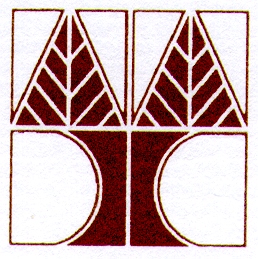Software Engineering for Start-ups (SE4SU) Special Session
SPECIAL SESSION SCOPE
We live in a time when software start-ups are an important new branch of economic activity. The fields of these start-ups range from casual software on mobile devices (‘apps’) to critical business applications, and technological trends, such as cloud computing, mobile software development, open source software and global information sharing further accelerate the rise of software startups. They also enable new ways of starting up software business, such as fund crowdsourcing, global startups, and so on.
The global character of IT also leads to very high competition. In general, about 90% of the startups end up as failure. Yet, software in start-ups evolves faster than before. These startups are about creating innovative products and then finding the right market for them (and vice versa), and methodologies for them have started to emerge.
Some of the elements of successful software development approaches for start-ups include:
- rapid prototypes designed to test market assumptions,
- intensive use of libraries and frameworks,
- using minimum viable products, with a series of planned updates,
- user feedback early and often,
- ability to quickly redefine focus of the startup,
- interdisciplinary approach to software development,
- influence of social communities of start-ups.
Moreover, there are some key differences for software engineering in start-ups, including short time to launch, very intensive use of libraries and frameworks, potentially fast growth in number of developers/development team, and low budget software development, often building on open source tooling.
It is also the duty of higher educations such as universities to cultivate entrepreneurship spirits in students. The question is how to effectively teach students software startups and nurture future software entrepreneurs.
The SE4SU special session at SEAA’16 intends to bring together the technological, methodological and educational perspectives on software startups. The aim of this special session is to gather industrial and academic minds together to explore the potentials and synergies underlying these perspectives.
As a result of the session, we should have a clearer understanding of which methods, processess and techniques can aid to the success of software start-ups.
To this end, we encourage people to submit their original research studies or their first hand experiences regarding the abovementioned perspectives. The topics listed below are only suggestive and serve to solicit more interesting related topics:
- Analysis of Failure and Success factors of software startups
- Impact of new technological trends on software startups
- Methodological approaches to startup development such as Lean Startup
- Case studies regarding software startups, their products and operations
- Teaching of Software Entrepreneurship
- Curriculum development for software startup education
- Experience reports on startup software development
SPECIAL SESSION PROGRAM COMMITTEE
- Michel Chaudron (Chalmers and Gothenborg University, Sweden)- Tommi Mikkonen (Tampere U of Tech, Finland)
- Pekka Abrahamsson (NTNU, Norway)
- Hassan Charaf (BUTE, Hungary)
- Erhan Eren (Middle East Technical University, Ankara, Turkey)
- Peter Gloor (MIT, USA)
- Casper Lassenius (Aalto University, Finland)
- Juan Manuel Murillo (University of Extramadura, Spain)
- Sjoerd Louwaars, S.P. (Leiden University, Netherland)
- Dr. Christoph Johann Stettina (Research & Innovation Centre for Innovation, The Hague, Netherlands)
- Dr. Syed Shah (SICS Swedish ICT AB)
- Dr. Wang Xiaofeng (University of Bolzano)

